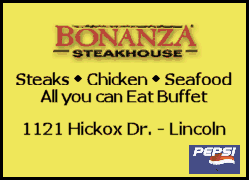| |||||||||||
| |||||||||||
The days of arriving minutes before a flight are a distant memory, and lines are inconsistent. While one Transportation Security Administration checkpoint took four minutes to clear, another involved a 27-minute wait. Frequent fliers know the ever-changing set of security rules. Most others don't. Some people worry about radiation-emitting, modesty-eroding full-body scanners, although their use is still sporadic. At Newark Liberty International Airport, the machines were shut down during the Monday morning rush. In Fort Lauderdale, Fla., two lanes were open. One had a full-body scanner. One didn't. Passengers could pick. "I'm not really convinced that any of this security is doing anything other than making people feel safe," said Matthew Von Kluge, of Chicago. He was wearing a shirt created by his former boss, fashion designer Vivienne Westwood, saying: "I am not a terrorist. Please don't arrest me." But Diane Dragg, of Norman, Okla., said: "I'd rather do it than be blown up." Not everything has been bad for fliers. Many planes now have individual TVs and Wi-Fi. Kiosks and websites make checking in easier. And with travelers arriving earlier and earlier at the airport, there are better shops and restaurants.
It's been harder for airlines to find a silver lining. They're out $54.5 billion in the U.S. over the last decade, having lost money in seven of the past 10 years. At least 33 airlines have filed for bankruptcy protection, including Delta, Northwest, United and US Airways. Some, including ATA and Aloha, stopped flying. It's not just Sept. 11 that hurt airlines, which were hit hard by spikes in oil prices and a drop in travel during the recession. But after the terror attacks, just getting passengers to fly again was a challenge. In the first year, traffic fell nearly 8 percent. It took three years to return. "People were just scared to fly," said F. Robert van der Linden, a curator at the National Air and Space Museum. To keep planes in the sky, airlines burned through their cash reserves and borrowed heavily, said Jim Corridore, an airline analyst with Standard & Poor's. Fares were dropped to unprofitable levels to lure back passengers. It worked, but vacationers now expect rock-bottom prices. Airfares today are 20 percent lower than they were on 9/11, when adjusted for inflation. Airlines now operate on razor-thin margins, with fewer employees. More than a quarter of the industry's 620,000 full-time jobs pre-9/11 were eliminated. Those that remain are less lucrative: The average pay for a pilot with 10 years of experience is now $145,000, down 13 percent when adjusted for inflation. For passengers, the real legacy of the attacks might not just be more invasive security checks, new fees or other things we never had to worry about before
-- like whether the name on our ticket precisely matches the name on our driver's license. It might just be losing our ability to relax in the skies. Though children like Frank and Francesca can still feel the joy of flying, Ethan Estes of Louisville, Ky., could well speak for most adults. "If the airline does everything perfect," he said, "the trip is just bearable."

[Associated
Press;
Copyright 2011 The Associated Press. All rights reserved. This
material may not be published, broadcast, rewritten or
redistributed.
News | Sports | Business | Rural Review | Teaching & Learning | Home and Family | Tourism | Obituaries
Community |
Perspectives
|
Law & Courts |
Leisure Time
|
Spiritual Life |
Health & Fitness |
Teen Scene
Calendar
|
Letters to the Editor